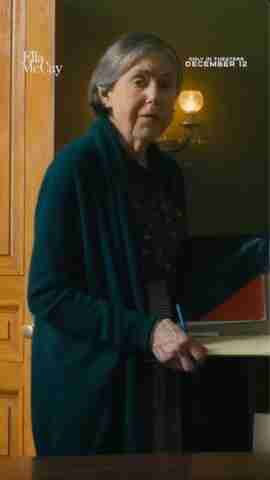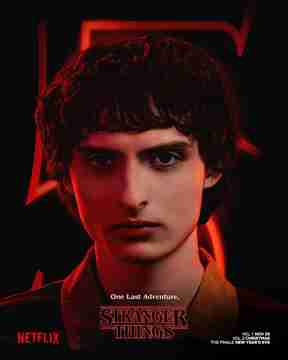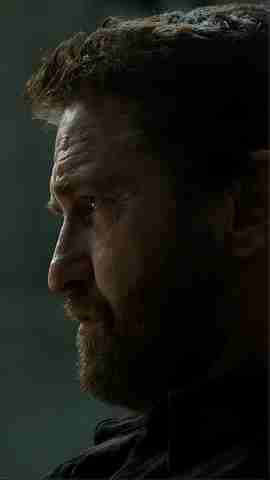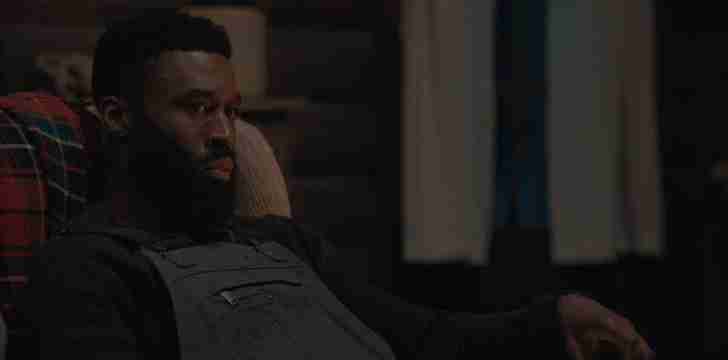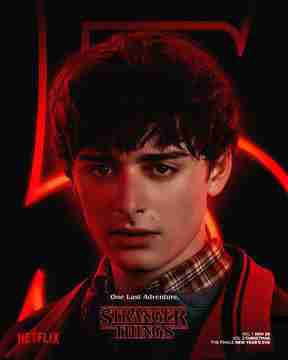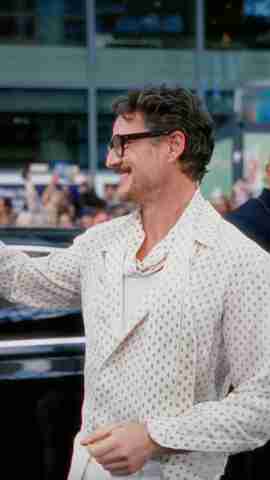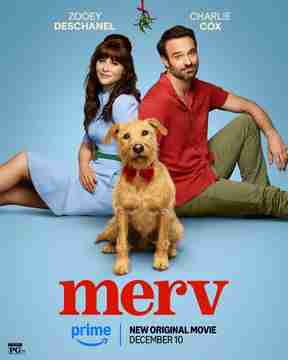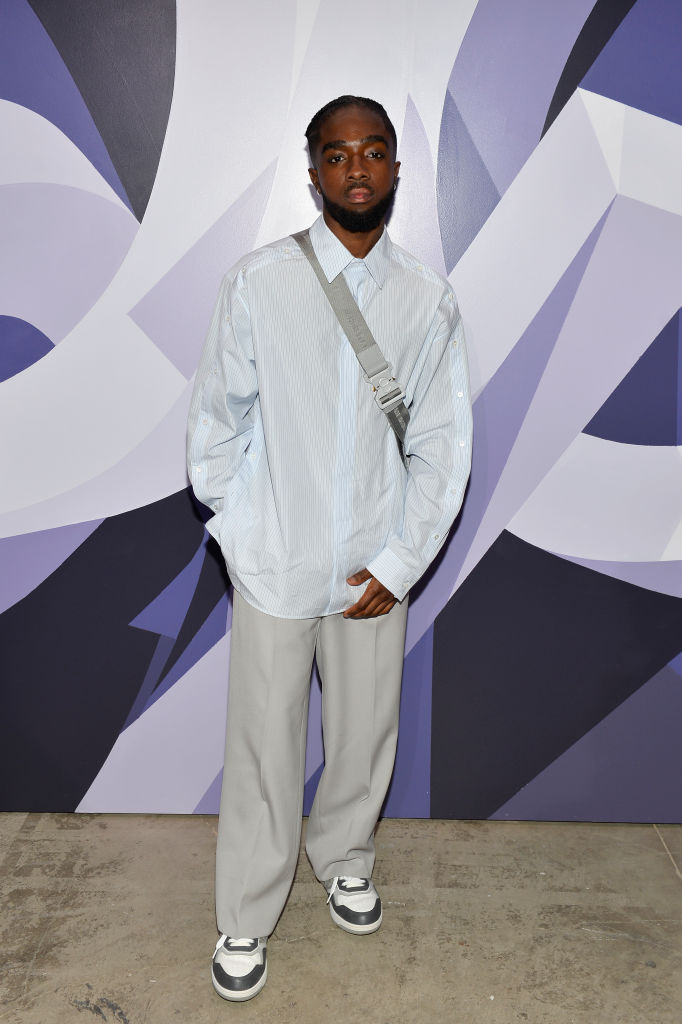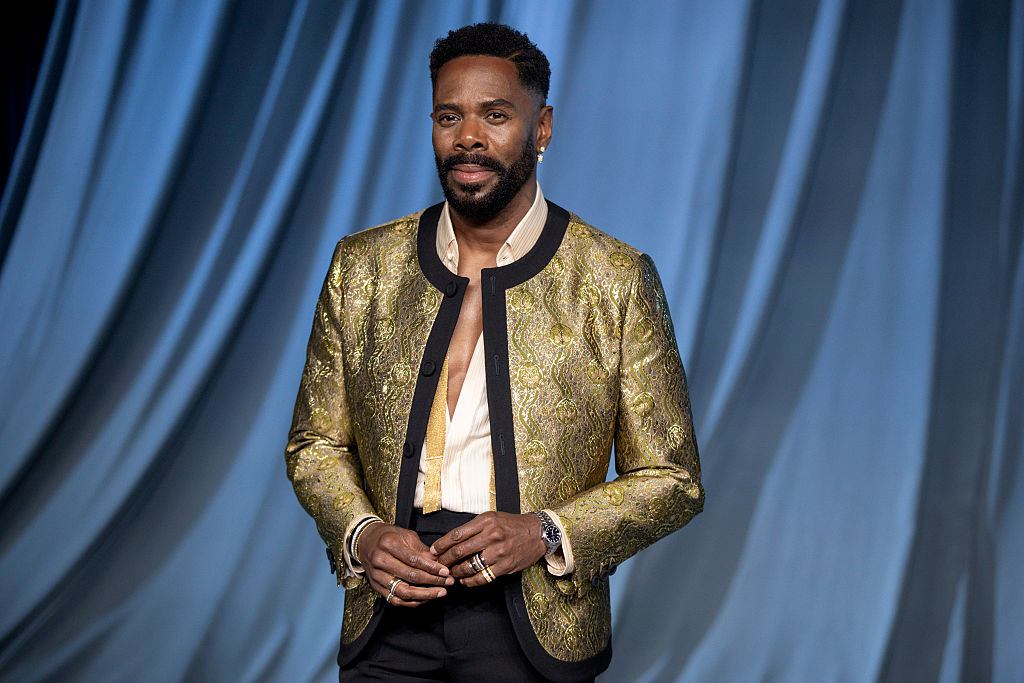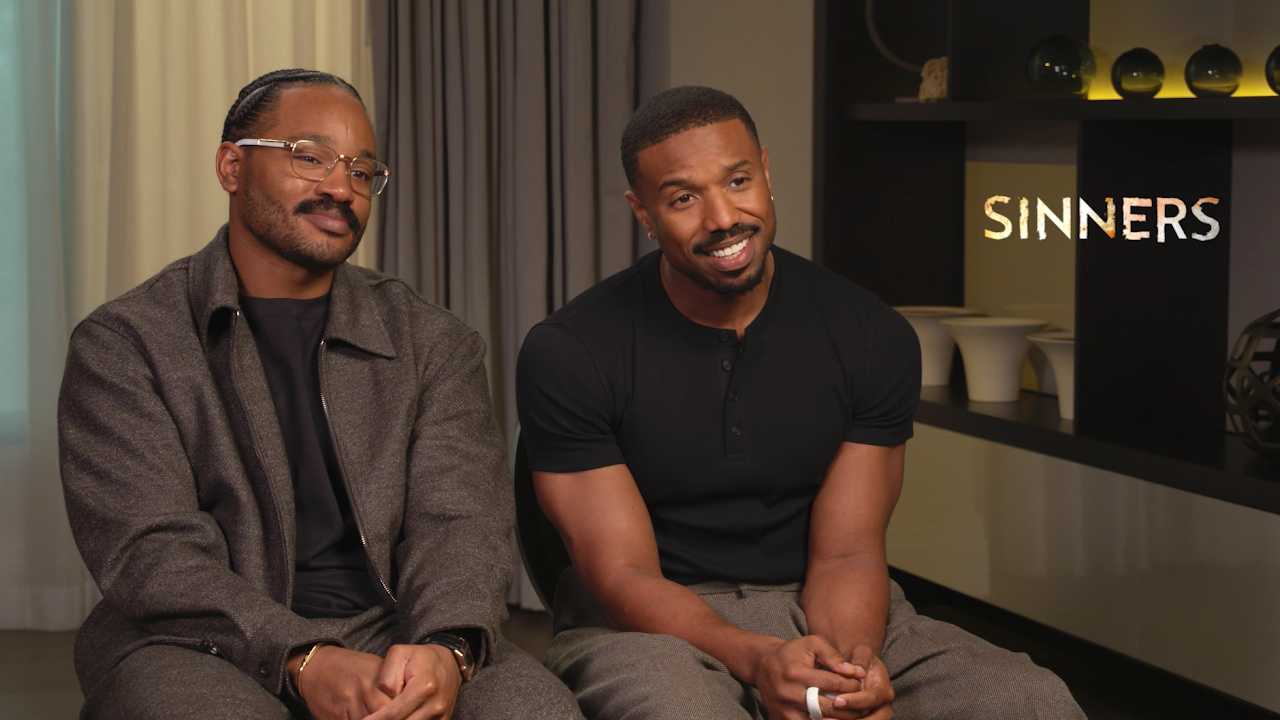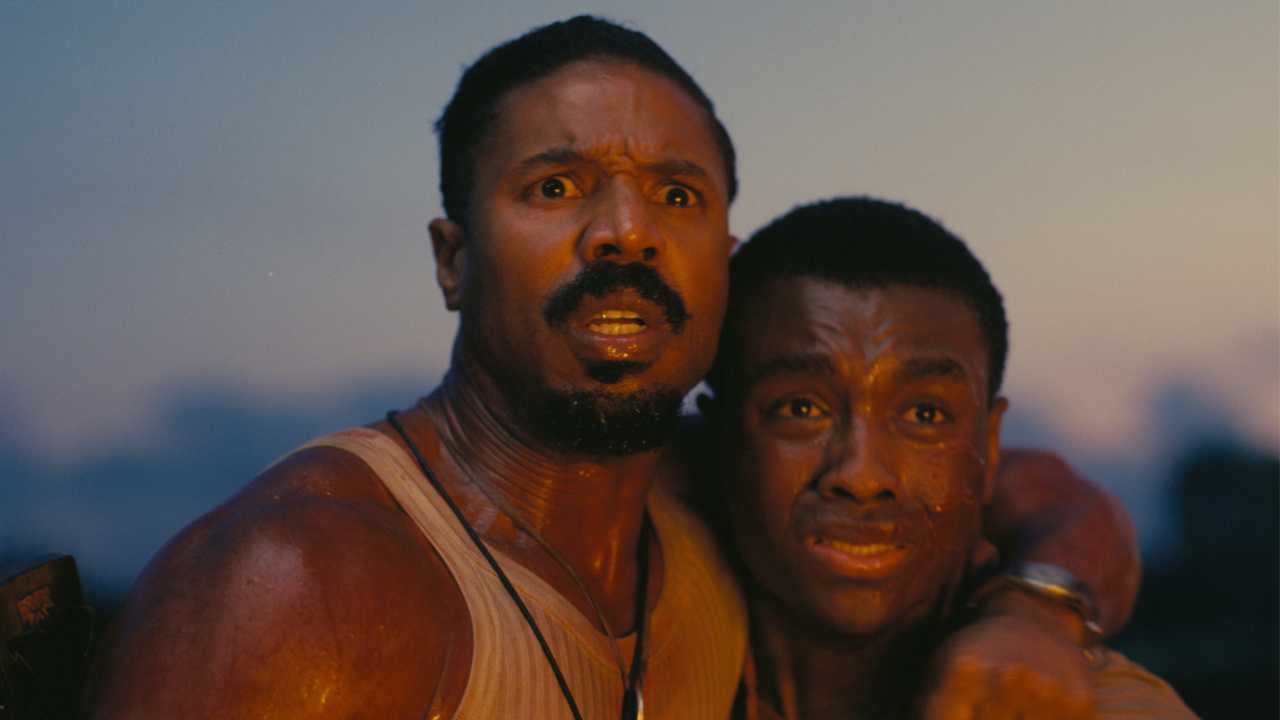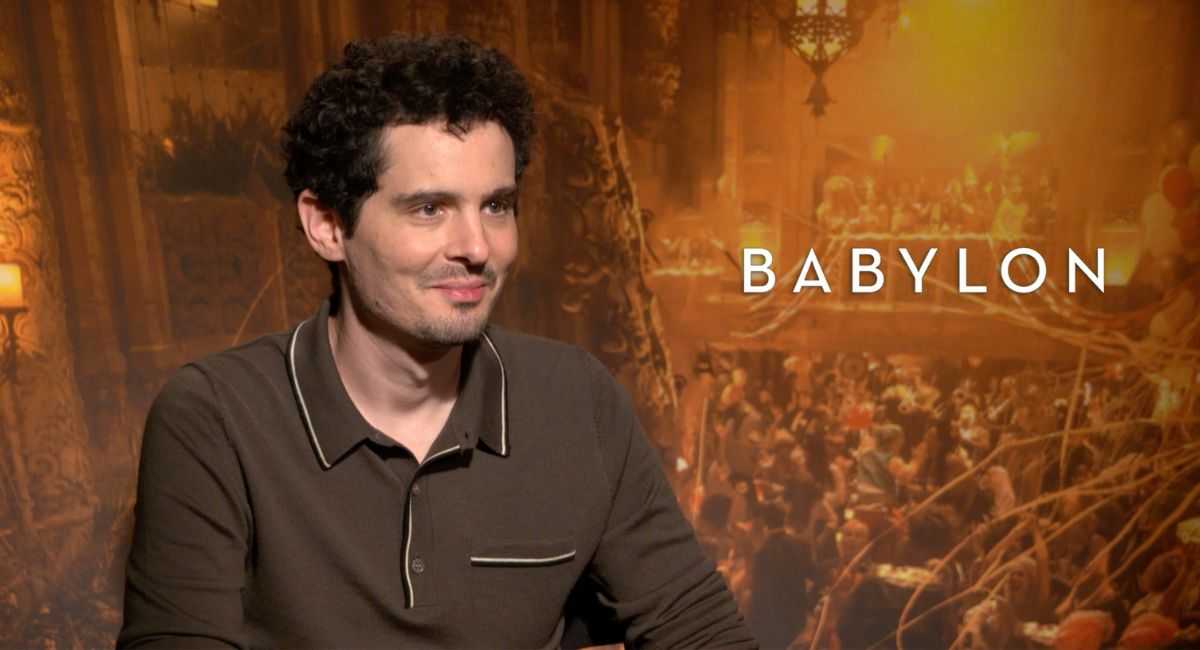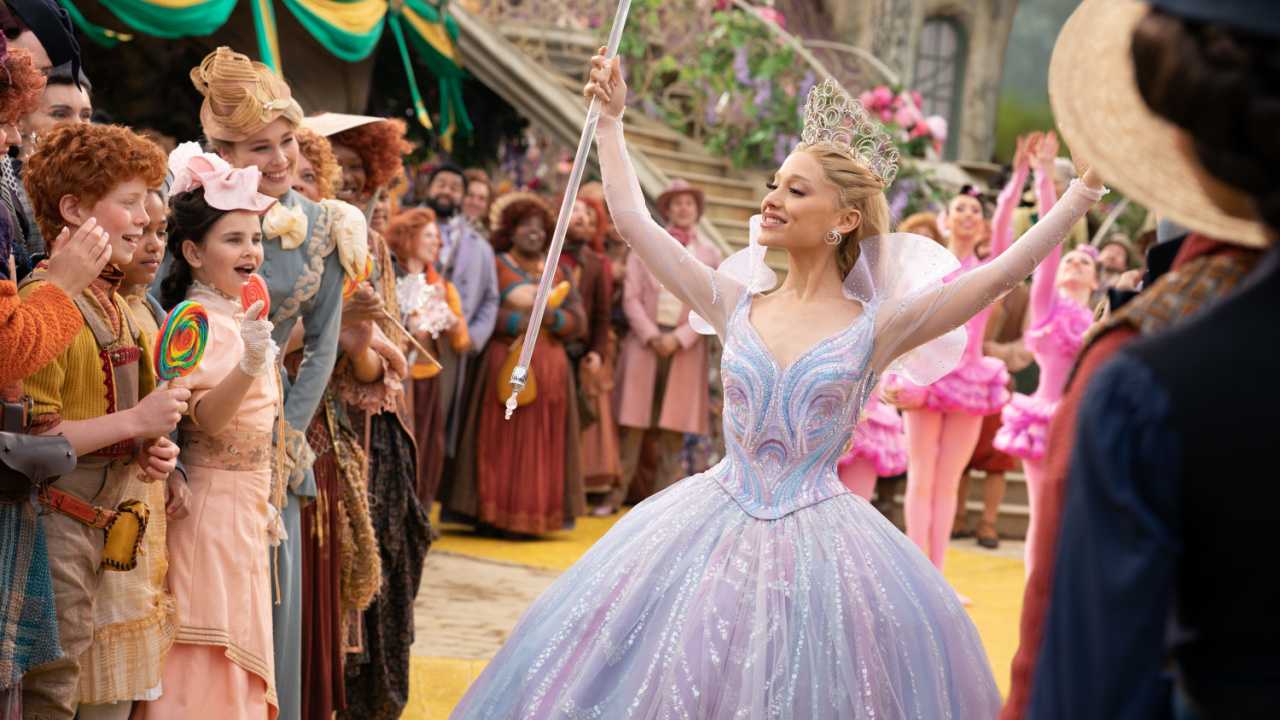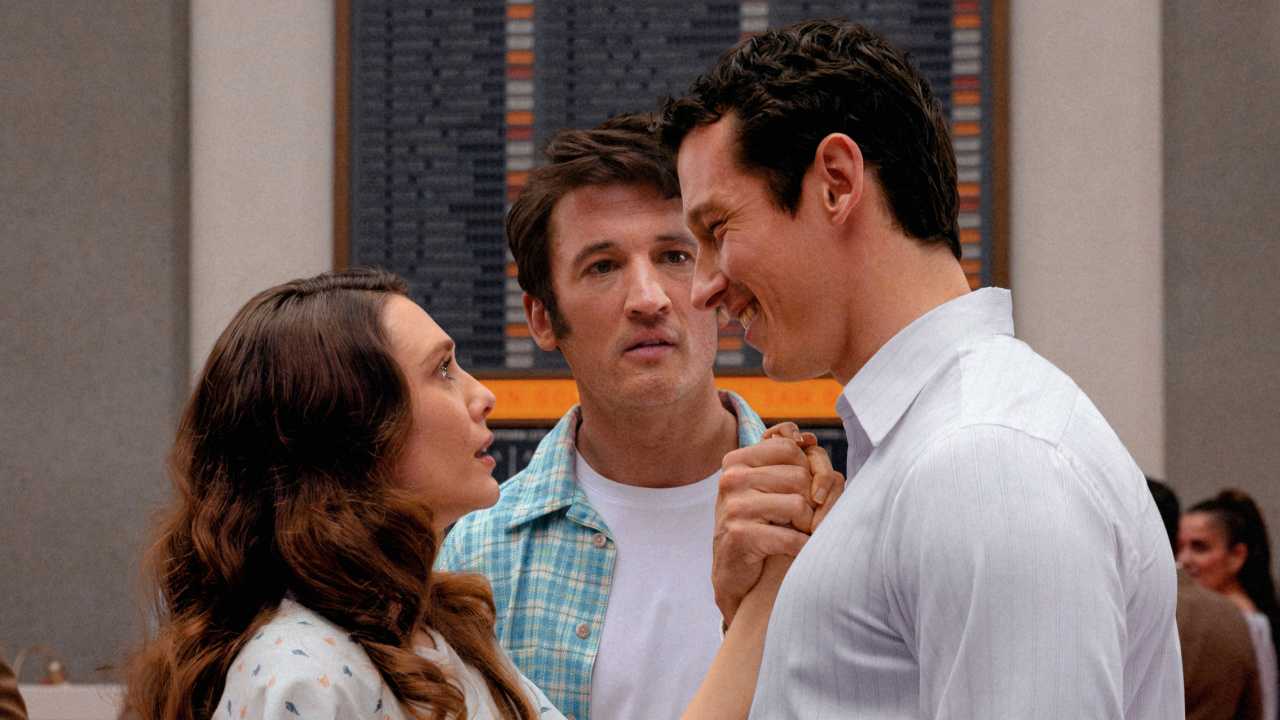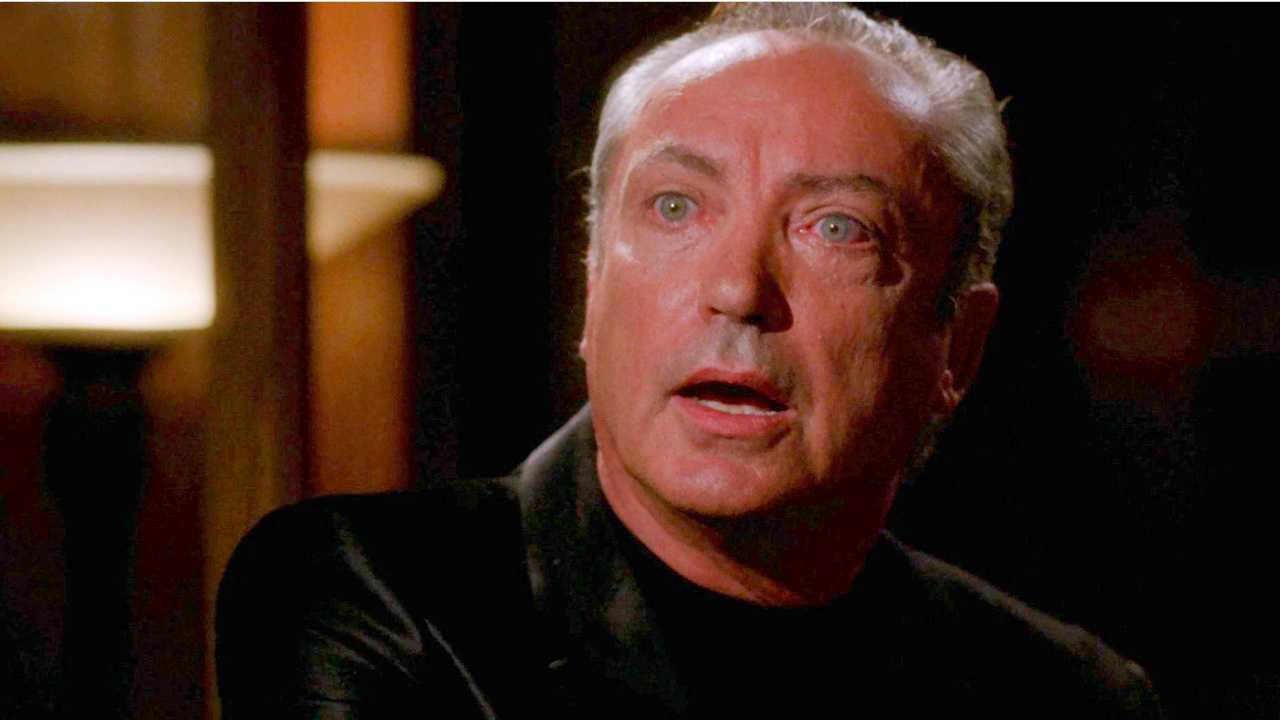Damien Chazelle Finds Good Performances but Little Soul in ‘Babylon’
The story of excess, ambition and changeable careers during Hollywood’s 1920s transition from silent movies to talkies is a mixed bag.
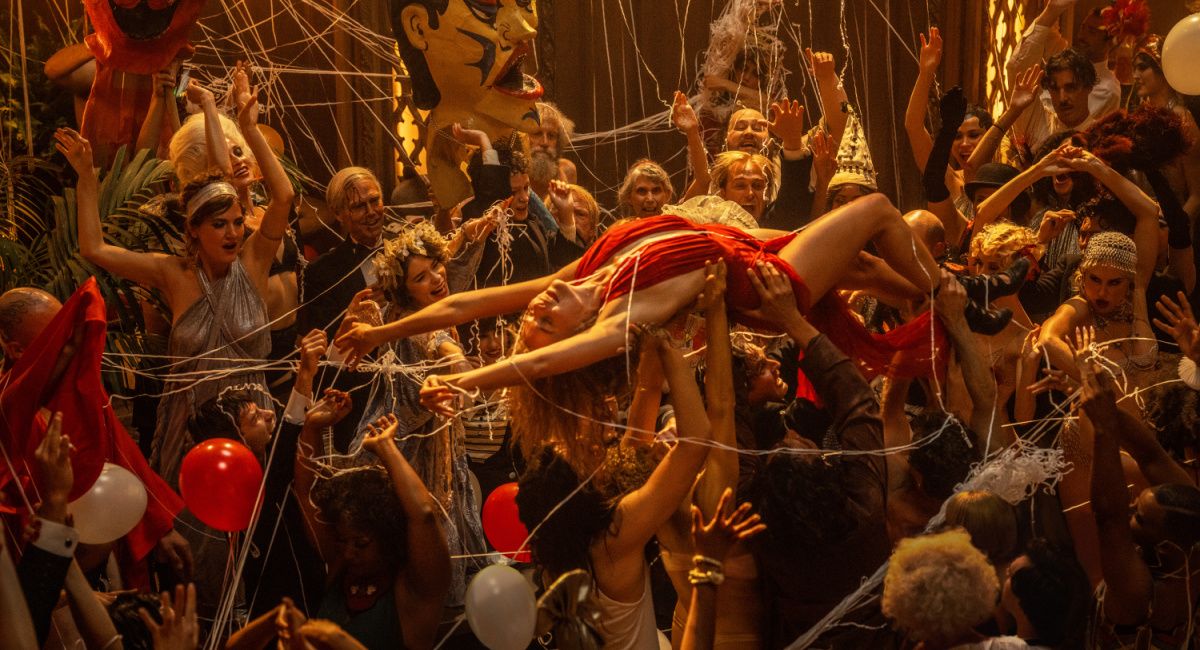
Margot Robbie plays Nellie LaRoy in 'Babylon' from Paramount Pictures.
Debuting in theaters on December 23rd, ‘Babylon’ is the latest film from Damien Chazelle, the writer-director of ‘Whiplash’ and ‘La La Land’. Unfortunately, it is also his weakest effort, though not for lack of ambition and scale.
Starting, perhaps as it means to go on with a desire for shock and even a metaphor for what happens to many of the characters in the movie, ‘Babylon’ features an elephant defecating noisily and filthily across an unfortunate man helping to push the truck it is riding in up a hill, the result also splattering the camera.
The animal is on its way to be the star attraction a lavish Hollywood bash being held in the hills, and one of the people helping to get it there is Manny Torres (Diego Calva), who fortunately avoids being covered in Proboscidea poop.
He ends up hired to help out at the party and has his first experience of roaring ‘20s Hollywood––or at least its decadent, wild excessive side––where sweaty, near-naked crowds writhe in time to jazz music. Drugs and booze are in free supply, all thanks to the host, veteran actor Jack Conrad (Brad Pitt) who shows up with his latest soon-to-be-ex-wife, played in a brief scene by Olivia Wilde.
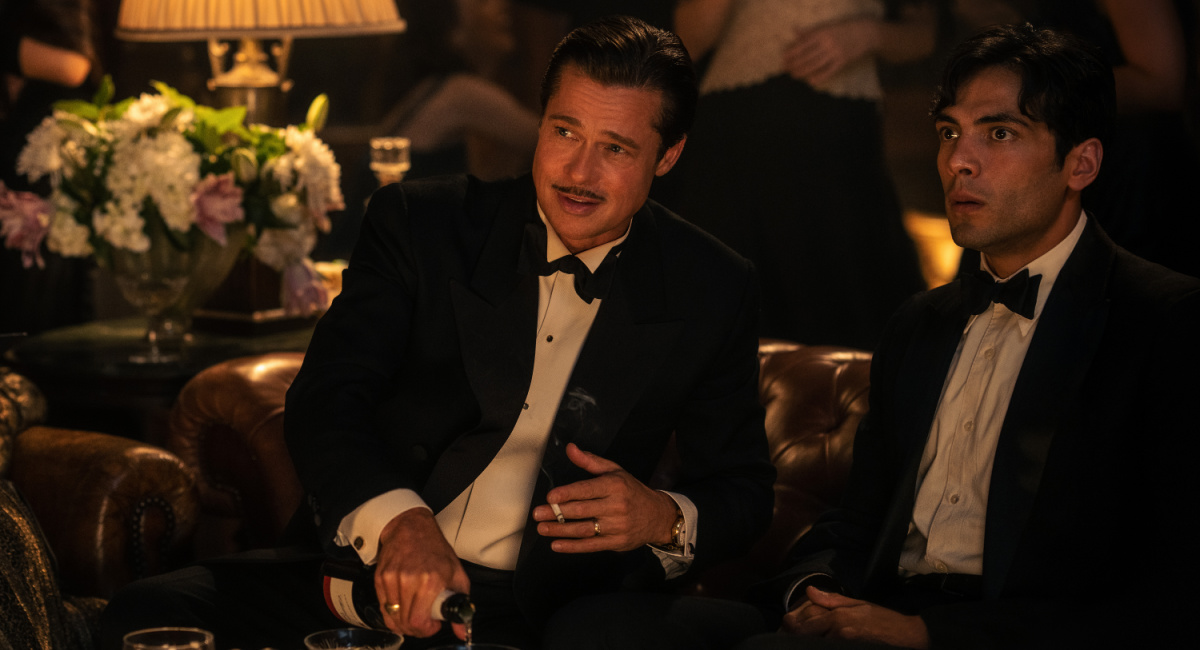
(L to R) Brad Pitt plays Jack Conrad and Diego Calva plays Manny Torres in 'Babylon' from Paramount Pictures.
Looking to gatecrash is Nellie LaRoy (Margot Robbie), an ambitious young woman convinced she has untapped star power, and who ends up scoring a lucky break, setting her star on the rise as Jack starts to see his own begin to fall.
Manny––who befriends Nellie––is captivated by the idea of working in Hollywood, and sees his own prospects enhanced when one of Jack’s team asks him to make sure the sozzled actor gets home safely. From there, Manny works his way up the ranks, his good ideas for movies helping boost his career in the fictional film studio of the story.
‘Babylon’ is primarily the story of Manny, Nellie and Jack, with some attention paid to jazz musician Sidney Palmer (Jovan Adepo), who will carve his own path out in the entertainment industry, performer Lady Fay Zhu (Li Jun Li), and gossip columnist Elinor St. John (Jean Smart).
The characters’ arcs weave in and out of each other, as Nellie becomes more and more famous (while her gambling habits and other addictions catch up to her) and Chazelle roams from party to party, interspersed by scenes where movies are made.
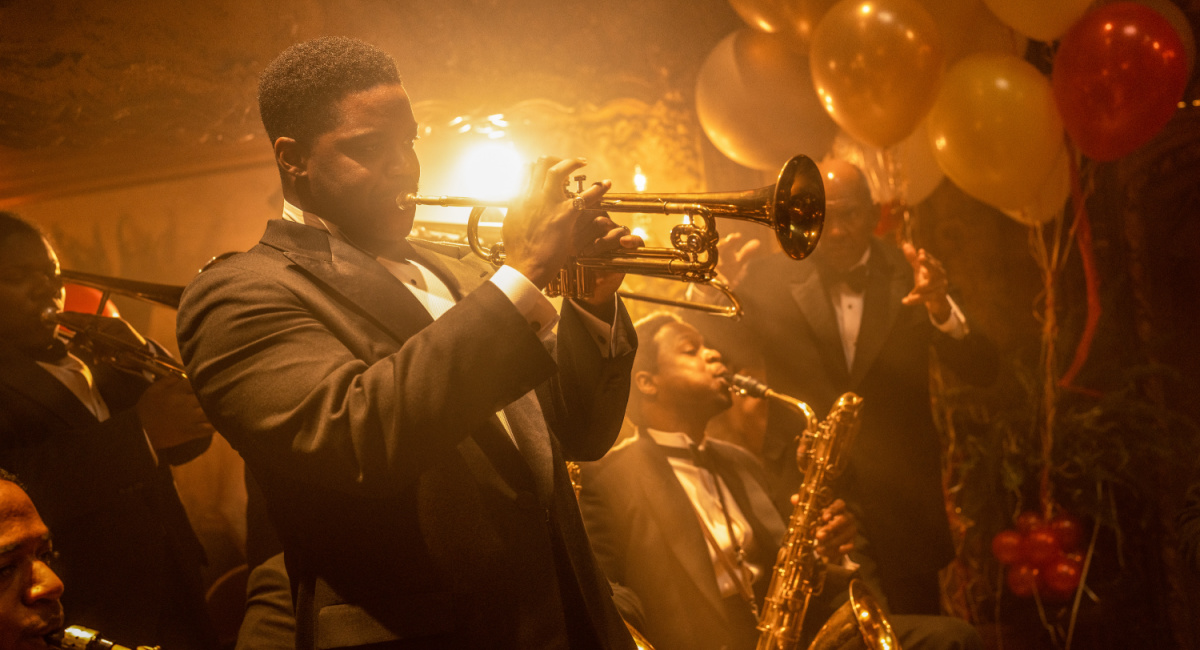
Jovan Adepo plays Sidney Palmer in 'Babylon' from Paramount Pictures.
Around them, Hollywood begins to evolve from the silent era to the age of talkies, and from rough-and-ready shooting in the desert to cavernous soundstages.
Robbie is particularly vibrant in the film, finding different layers to her character as she moves through the business, and is convincing at every step. Whether she’s conniving to get her name in lights, or overhearing people talking her down, this is further proof that she’s one of the best working at the moment. Pitt, meanwhile, commits to the easy charm of Conrad, whose career is on the wane as audiences don’t warm to him once talking pictures come along.
Calva, who is probably best known to American audiences from ‘Narcos: Mexico’, is something of a revelation, a soulful presence in the movie who worries that his soul is tainted as he climbs the executive ranks and then has to help Nellie out of her money problems.
Smart, whose gossip hound flits in and out of the story, is particularly strong, though she’s not often on screen for more than a minute or so. But her big scene with Jack, where she explains his downward slide, is a highlight. Li, meanwhile, who is also largely on the sidelines, makes the most of her role.

Margot Robbie plays Nellie LaRoy in 'Babylon' from Paramount Pictures.
And there are certainly elements to recommend here: in some scenes, ‘Babylon’ has a pleasing level of comedy, especially when director Ruth Adler (Olivia Hamilton) and Nellie are trying to shoot a scene in the early sound era, where mic positions, concerns over volume and particularly an overheating cameraman, provide memorable laughs.
A stacked cameo cast largely exists for the audience to play Spot The Actor, with the likes of Eric Roberts, Max Minghella (playing Irving Thalberg, one of the few actual Hollywood legends in the mostly fictionalized movie), Katherine Waterston, Lukas Haas, Flea and Samara Weaving all showing up at different times.
Chazelle unfortunately loses focuses when it comes to the theme of the film, though. Certainly, there is plenty to be mined from the idea of Hollywood and this time, but ‘Babylon’, for all its length and intertwined stories, merely scrapes the surface. The concept that the entertainment industry is a place for excess and fraught with problems for those who seek stardom is hardly a fresh one, and the movie has little to say that is new or interesting.
This is much bigger than his previous efforts, but it soon becomes ungainly, and is loaded down with flabby scenes that add little. Even a crazed moment for Calva, where he’s seeking financial help from the distinctly dodgy James McKay, played by Tobey Maguire, which takes in freaks, torture implements and an alligator, feels like it could easily be lost in the service of reducing the movie’s overinflated running time.

Tobey Maguire plays James McKay in 'Babylon' from Paramount Pictures.
The less said about the final montage that wraps up the movie, the better, to be honest. It’s meant to celebrate the movies but ends up an embarrassingly amateur example, cramming in easy highpoints and coming across as something out of a film school offering.
Given that he’s been planning and writing the movie in his head for around 15 years, we’re sorry to report that Chazelle has fumbled this one. ‘Babylon’ is not without its charms and some diversion, but beyond the main cast’s appeal, it is a lot of sound and fury, signifying––not nothing––but not much.
‘Babylon’ receives 2.5 out of 5 stars.
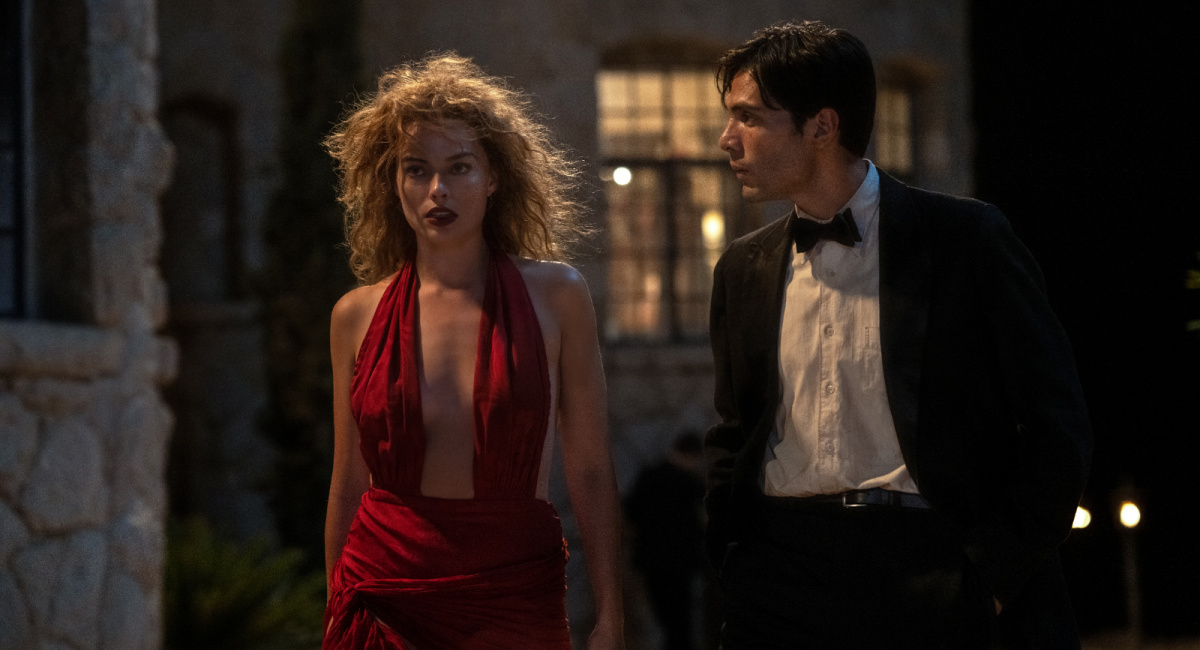
(L to R) Margot Robbie plays Nellie LaRoy and Diego Calva plays Manny Torres in 'Babylon' from Paramount Pictures.

Babylon

